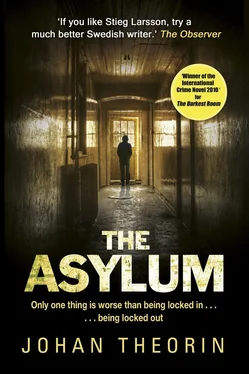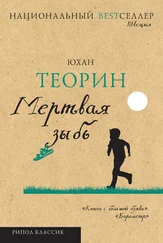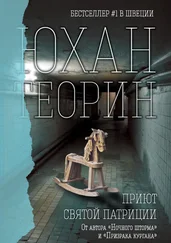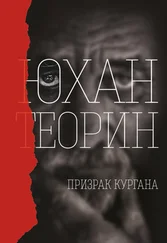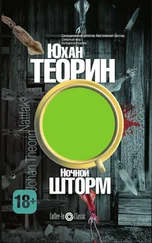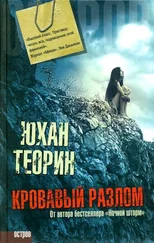He quickly carried the bundles down to level ground, took exactly one hundred and twenty paces away from the bunker and hid the lot under a dense fir. He would fetch it later, when he had found William.
Jan looked around. It was twilight now, but nothing was moving in the forest.
Where should he start?
Jan goes to work earlier on the Sunday; he wants to get to the hospital before the sun goes down. It is shining like a big yellow ball in a dark-blue sky this afternoon. Autumn days can be so fresh and clear sometimes.
The sunshine is perfect, because after the reply from Rami, he wants to see the hospital in daylight.
I have marked out my nest , the letter had told him. Come out of the forest and see .
The forest is at the back of St Patricia’s, so Jan has to make a detour. This is not without risk — he must keep out of range of the cameras and alarm systems. But the slope leading down to the brook that runs alongside the fence is thick with undergrowth and dense fir trees, and he is able to remain hidden in the shadows.
He stops between two firs and gazes over the fence at the rows of windows. From the edge of the forest he spots something new on the stone façade: something is fluttering in the wind up there.
A white flag. It looks as if it has been made from a torn sheet or a handkerchief, and it is hanging down from one of the windows.
Now he understands what the squirrel meant when she said she had marked out her nest.
Jan counts silently, circling the window with the flag in his mind’s eye, as if the façade were a map: fourth floor, seventh window from the right . He must remember that position.
There is no sign of anyone behind the glass; the room is in darkness, but Rami has shown him exactly where she lives.
All he has to do now is get there — but the only way is through the basement.
Before tea Leo and Mira are playing doctors. Their cuddly toys are poorly, and the children are going to make them better. Jan helps them to sort out the little beds, then he has to lie down and be a patient too.
After they have eaten they go outside for a while. Leo and Mira want to play on the swings, but Jan is somehow detached from their activities. He gives them both a push, then glances over at the fence. It is dusk now, and the floodlights have come on, shining on wet leaves and the sharp points of the barbed wire.
Fifteen years have passed, but Jan hopes that Rami will still be there. His Rami, that is. The Rami who was in the room next door to him in the Unit for a while. The girl who let him in and was the first person who seemed to think he was worth talking to. No, not seemed to think — she actually liked spending time with Jan. And the fact that she left him and ran away like a squirrel — well, that was because of something else altogether.
It is late by the time the children fall asleep — just before nine.
Jan should be able to relax now, but it is impossible. Leo had trouble getting to sleep, and shouted for Jan several times. Jan’s nerves are already at breaking point, and tonight he has a long journey ahead of him. Long and uncertain — even if he knows his goal.
Fourth floor, seventh window from the right .
At quarter past eleven he checks on Mira and Leo one last time, then heads down the stairs to the basement with the Angel clipped to his belt. There isn’t a sound; the children have been fast asleep for more than two hours now.
He opens the door into the safe room; the door at the far end is still unlocked. He walks into the darkness.
He is back in the hospital basement, but he is better prepared this time. The Angel has new batteries, and the little beam sweeps across the old tiled walls. He knows where he is, but he is still unable to relax. Last time Hanna was upstairs listening in, but tonight he is all alone.
He sets off, with Legén’s primitive map in his hand: the arrows should help him find his way.
To make sure he doesn’t get lost, he has something else in his pocket: white paper. Before he left he sat in the kitchen and tore up several sheets of paper into tiny pieces. As he walks along he drops them one by one, a couple of metres apart.
Marking out his escape route.
He eventually reaches the grubby tiled rooms, and tucks the Angel underneath his jumper so that the light won’t show too much, just in case any patients are wandering around down here. He is getting close to the laundry now, and even though Legén maintained it was closed on Sundays, he doesn’t want to advertise his presence.
He looks up at the ceiling. Thick, snake-like electric cables are intertwined up there. And somewhere above him are the rooms where the patients live. About a hundred, Högsmed had said. And he is hoping that one of them, on the fourth floor, is Alice Rami.
He has reached the laundry. The door is closed. And locked? He reaches out and pushes down the handle. The door is stiff, but it opens.
The last time he was here there was a light on, but now the room is in darkness. It is like a black cave, apart from the odd light on the electricity meter and the washing machines, glowing like the red eyes of animals lurking in the gloom. Fans are whirring softly in the background; the air is warm and heavy.
Jan steps inside, still clutching his map.
He is looking for a wide door, but doesn’t want to switch on the light. Or rather he does want to, but dare not. He gropes his way forward, past rows of padlocked metal cupboards and a table littered with dirty coffee cups. Then he is in a smaller room with no lights at all, and he has no choice but to use the Angel.
The beam falls on an enormous washing machine with a metal face and a round, gaping mouth in the middle. The walls are lined with long shelves containing bundles of laundry; up at the top there is a steel rail with a row of vests on coat hangers; they look like slender white angels.
Jan carries on searching, and eventually he discovers a broad, black steel door.
The door to the drying room, according to the map. A few metres to the left there is a narrower wooden door with a round knob; Jan goes over and opens it.
The rooms in the laundry have been getting smaller and smaller, and this is the smallest of them all. A storeroom with stone walls. There is an old light switch by the door, and he decides to risk it in order to save the Angel’s batteries.
A dusty bulb illuminates a windowless room full of rubbish: old wooden crates, empty soap-powder boxes, a broken coat hanger. But next to one of the shelves is exactly what Legén promised: a lift door with an iron handle. A very small door — more of a hatch, really. It is barely a metre wide and not much taller, and when Jan goes over and opens it, he realizes that this is not a lift meant for people. It is a wooden lift built many years ago to send baskets of clean laundry up to the various floors in the hospital.
There isn’t much room inside; it would be impossible to stand upright. Jan stares at the opening and hesitates. Then he stoops down and pushes his head and shoulders inside. It’s like crawling into the luggage compartment on a bus. Or into a big chest.
It is seriously claustrophobic, but still he squeezes himself inside.
Fluffy dust balls swirl away from his hands and knees; he can’t stand up, but with a little bit of effort he can move his legs and turn around.
Before Jan closes the hatch he glances down at the Angel. What will he do if one of the children wakes up and calls out to him now? But he can’t think about that; he is too close to Rami.
Fourth floor, seventh window .
He switches on the Angel’s torch. The wooden walls are pressing in on him, and his shadow is dancing on the ceiling. He sees a number of black circles in front of him. Seven buttons. They are old and cracked, they might even be made of Bakelite, and one of them is marked EMERGENCY STOP. The other six are not numbered, but he takes a chance and presses the fourth button from the right.
Читать дальше
